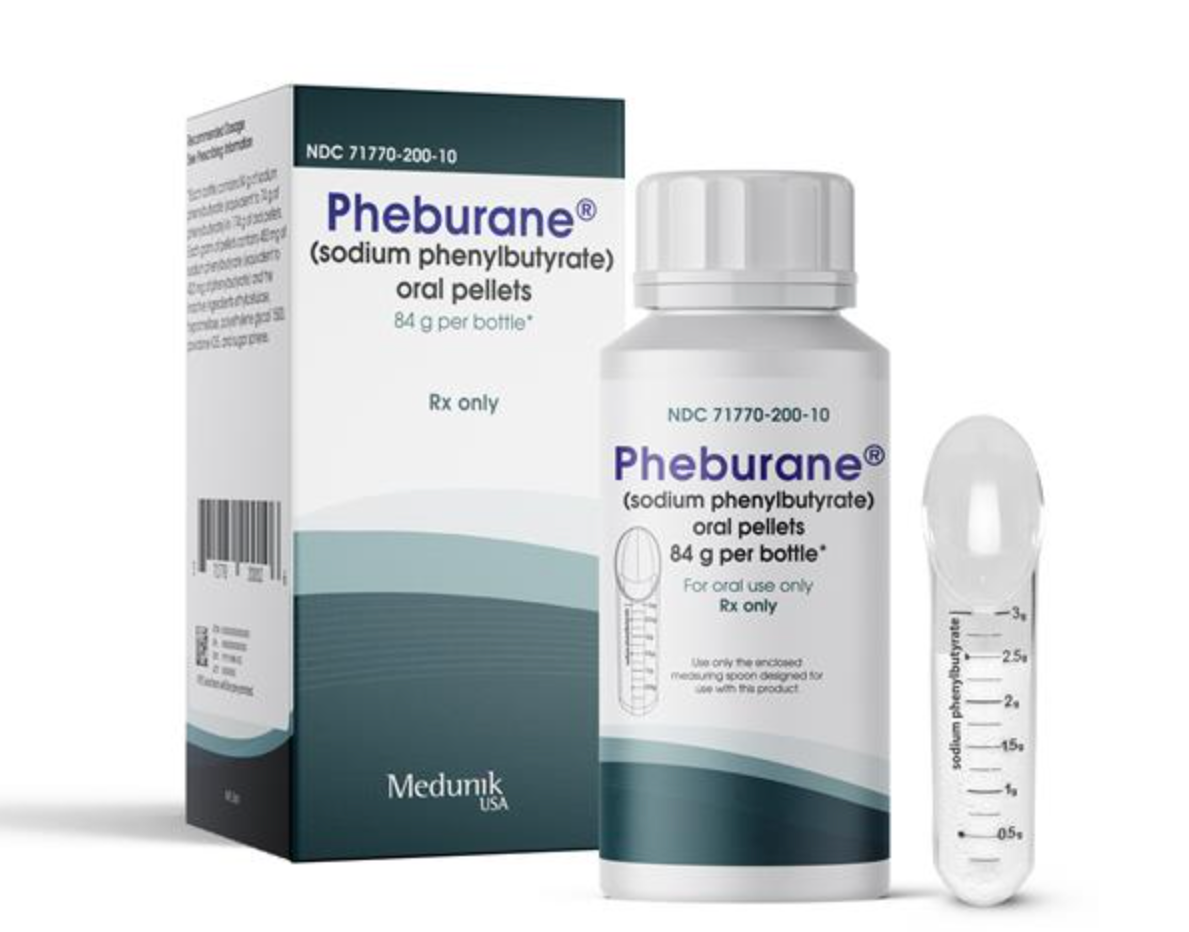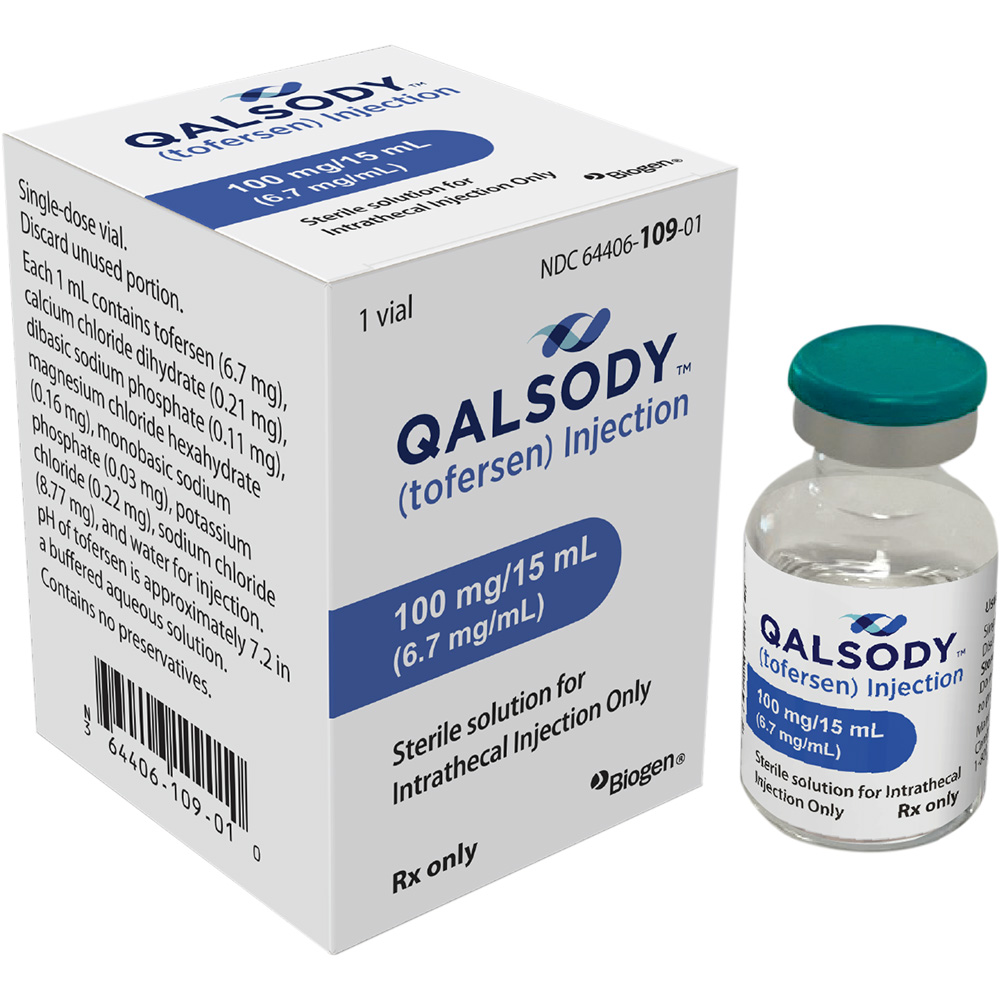Pheburane (sodium phenylbutyrate) vs Qalsody (tofersen)
Pheburane (sodium phenylbutyrate) vs Qalsody (tofersen)
Pheburane (sodium phenylbutyrate) is a medication used to treat urea cycle disorders by helping remove ammonia from the body, which is beneficial for individuals with a deficiency in enzymes that are part of the urea cycle. On the other hand, Qalsody (tofersen) is an antisense oligonucleotide designed to target and reduce the production of a specific protein, superoxide dismutase 1 (SOD1), which is associated with a form of Amyotrophic Lateral Sclerosis (ALS), a neurodegenerative disease. The choice between Pheburane and Qalsody would depend on the specific condition being treated, as they are used for entirely different diseases and mechanisms of action, and a healthcare provider should be consulted to determine the appropriate treatment based on the patient's diagnosis.
Difference between Pheburane and Qalsody
| Metric | Pheburane (sodium phenylbutyrate) | Qalsody (tofersen) |
|---|---|---|
| Generic name | Sodium phenylbutyrate | Tofersen |
| Indications | Urea cycle disorders | Amyotrophic lateral sclerosis (ALS) |
| Mechanism of action | Converts to phenylacetate which conjugates with glutamine to form phenylacetylglutamine, thereby reducing ammonia levels | Antisense oligonucleotide that reduces the production of superoxide dismutase 1 (SOD1) protein |
| Brand names | Pheburane | Qalsody |
| Administrative route | Oral | Intrathecal injection |
| Side effects | Nausea, vomiting, unpleasant taste, anorexia, headache, dizziness | Back pain, headache, falls, spasticity, and respiratory failure |
| Contraindications | Hypersensitivity to sodium phenylbutyrate or any component of the formulation | Hypersensitivity to tofersen or any component of the formulation |
| Drug class | Urea cycle disorder agent | Antisense oligonucleotide |
| Manufacturer | Lucane Pharma | Biogen |
Efficacy
Pheburane (Sodium Phenylbutyrate) in ALS
Pheburane, known generically as sodium phenylbutyrate, is a medication primarily used in the treatment of urea cycle disorders, which are genetic disorders that cause ammonia to accumulate in the blood. However, it has also been investigated for off-label use in Amyotrophic Lateral Sclerosis (ALS), a progressive neurodegenerative disease. The efficacy of Pheburane in ALS is not well-established, as it is not primarily indicated for this condition. Research into sodium phenylbutyrate for ALS has suggested potential neuroprotective effects, possibly through the reduction of neuronal stress and the modulation of gene expression related to the disease. However, clinical trials are necessary to fully determine its efficacy and safety profile for patients with ALS.
Qalsody (Tofersen) in ALS
Qalsody, also known as tofersen, is an investigational drug specifically designed for the treatment of ALS caused by mutations in the superoxide dismutase 1 (SOD1) gene. Tofersen is an antisense oligonucleotide that targets the SOD1 mRNA, aiming to reduce the production of the abnormal SOD1 protein that is toxic to motor neurons. The efficacy of Qalsody in clinical trials has shown promise, with Phase 1 and 2 trials indicating that the drug can lower SOD1 protein levels in the cerebrospinal fluid of patients with SOD1-ALS. However, the impact on disease progression and survival is still under investigation.
Current Status of Tofersen for ALS
As of the current knowledge cutoff, tofersen is in the late stages of clinical development. The results of Phase 3 clinical trials are eagerly awaited by the medical community and patients alike to confirm the drug's efficacy and safety. Preliminary data from earlier-phase studies suggest that tofersen may slow down the functional decline in patients with SOD1-ALS, but the extent of its benefits and its long-term effects are not yet fully understood. It is important to note that tofersen is specifically targeted at SOD1-ALS, which is a subset of the broader ALS population.
Considerations for ALS Treatments
When considering treatments for ALS, it is critical to understand that the disease is heterogeneous with multiple genetic and environmental factors contributing to its pathogenesis. Therefore, treatments like Pheburane and Qalsody may have varying degrees of efficacy depending on the individual patient's disease characteristics. It is also essential for healthcare providers to weigh the potential benefits of off-label or investigational treatments against the risks and to discuss these considerations thoroughly with patients and their families. As research continues, the hope is to find effective therapies that can alter the course of ALS and improve quality of life for those affected by this devastating disease.
Regulatory Agency Approvals
Pheburane
-
European Medical Agency (EMA), European Union

-
Food and Drug Administration (FDA), USA

Qalsody
-
European Medical Agency (EMA), European Union

-
Food and Drug Administration (FDA), USA

Access Pheburane or Qalsody today
If Pheburane or Qalsody are not approved or available in your country (e.g. due to supply issues), you can access them via Everyone.org.
How it works

Make an enquiry
Choose the medicine you want to buy, answer a couple of questions, and upload your prescription to speed things up. We’ll get back to you within 24 hours.


Make an enquiry
Choose the medicine you want to buy, answer a couple of questions, and upload your prescription to speed things up. We’ll get back to you within 24 hours.


Breeze through the paperwork
We'll guide you through the required documents for importing unapproved medicine, ensuring you have all the necessary information.


Get a personalized quote
We’ll prepare a quote for you, including medicine costs and any shipping, administrative, or import fees that may apply.


Receive your medicine
Accept the quote and we’ll handle the rest - sourcing and safely delivering your medicine.

Some text on this page has been automatically generated. Speak to your physician before you start a new treatment or medication.
Let's talk
If you have any questions, call us or send us a message through WhatsApp or email:
Contact us




